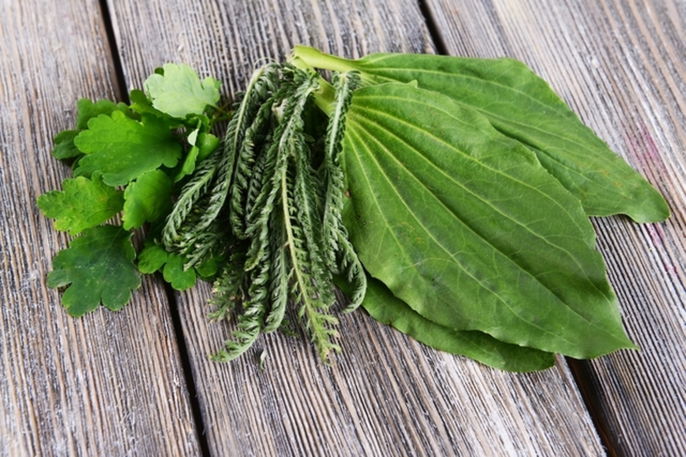Broadleaf plantains are a plant that are rich in flavonoids, alkaloids, terpenoids iridoids, mucilage and other compounds. These contribute to this plant’s antibacterial, antiviral and anti-inflammatory action. Broadleaf plantains are commonly used to prepare homemade remedies for the treatment of colds, flus, sore throats, uterine inflammation and intestinal inflammation.
In addition to its antimicrobial and anti-inflammatory properties, broadleaf plantains also contain anti-cancerous, detoxifying, expectorant, depurative, diuretic, antispasmodic, decongestant, healing and laxative properties (with the last property most potent in this plant’s seeds).
The scientific name for broadleaf plantains is Plantago major and it belongs to the Plantaginaceae family. It can be purchased at natural health stores, pharmacies and some open markets.

Health benefits
Due to its properties, broadleaf plantains can be used for:
1. Promoting wound healing
This plant can promote wound healing because it is rich in polyphenols, polysaccharides and antioxidants, which are responsible for protecting cells from inflammatory chemicals that cause destruction. This can stimulate tissue reparation.
2. Preventing stomach ulcers
Some scientific studies show that the leaves and seeds of broadleaf plantains help to prevent stomach ulcers. This plant has the ability to reduce acidity in the stomach, which can relieve pain and burning.
In addition, broadleaf plantains are also able to inhibit H. Pylori activity, which can lead to ulcers if not identified and treated correctly.
3. Managing blood sugar
Broadleaf plantains possess antidiabetic action. It improves the mechanisms used by pancreatic cells to regulate blood sugar levels. It also contains flavonoids, sterols and tannins, which are compounds that have a hypoglycemic effect.
4. Treating diarrhea
Some studies confirm that broadleaf plantains can improve diarrhea symptoms due to the tannins, flavonoids and alkaloids found in this plant. These compounds reduce intestinal secretions and fluid accumulation in the gut, leading to an antidiarrheal effect.
5. Fighting infections
Due to the presence of polysaccharides in its composition, broadleaf plantains contain protect properties against bacterias like Streptococcus pneumoniae, as well as viruses like the adenovirus. It is commonly used for treatment of the common flu.
In addition, the leaves of this plant are used can be used to make broadleaf plantain tea, which helps to thin-out secretions accumulated in the bronchi to relieve coughing. It can also be used for gargles to treat mouth conditions (like canker sores, pharyngitis, tonsillitis, and laryngitis), as it also contains anti-inflammatory and antibacterial action.
Broadleaf plantains also help to fend off bacteria that cause skin infections and UTIs, like Staphylococcus aureus, Escherichia coli and Candida albicans.
6. Preventing early aging
Because it is rich in antioxidants, mainly phenolic compounds and flavonoids, broadleaf plantains can prevent cellular damage from free radicals, which can help delay early aging.
How to use it
Broadleaf plantain leaves can be used to season meals, make tea or make wounds dressings. This plant’s seeds are also safe for consumption.
1. Broadleaf plantain tea
Ingredients
- 3 to 4 g of broadleaf plantain leaves
- 240 mL (about 1 cup) of water
How to prepare
Boil the water, then remove from heat and soak the leaves. Allow to infuse for about 3 minutes. Then wait for it to cool, strain and drink up to 3 cups per day.
2. Broadleaf plantain dressings
Wound dressings can be made by first preparing the tea outlined above. Soak a clean cloth or gauze in the tea and place directly on the wound. This dressing will help to heal the wound and decrease skin inflammation.
Possible side effects
The main side effects of broadleaf plantains are drowsiness, intestinal cramping and dehydration.
Contraindications for use
Broadleaf plantains are contraindicated for pregnant or breastfeeding women, or people with heart disease. It is not recommended for people with a bowel obstruction, hypotension or anyone about to undergo a surgical procedure. You should consult a doctor before consuming broadleaf plantains if you are diabetic, as this plant’s seeds can greatly decrease blood sugar levels, leading to hypoglycemia.
Before giving broadleaf plantains to children, discuss its use with a pediatrician. It is important to note that safety for use in children has not been scientifically studied.






























